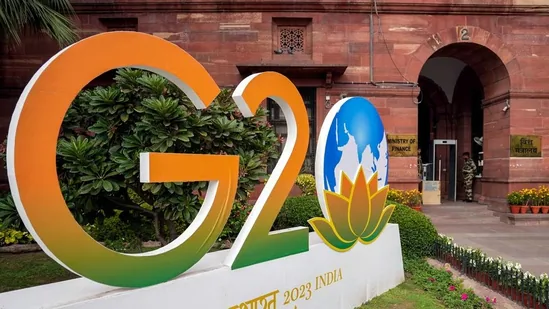
the Environmental Impact of the 2023 G20 New Delhi Summit
The convergence of global leaders during the 2023 G20 Summit in New Delhi marked a pivotal moment, drawing together key players from major economies to deliberate on pressing worldwide concerns. As the discussions spanned vital subjects such as economic expansion, trade dynamics, and security matters, an equally significant focus emerged—the imperative to meticulously scrutinize the ecological ramifications of these prominent assemblies. In an era defined by urgent environmental trials, comprehending the reverberations of expansive occasions like the G20 Summit on the planet’s well-being stands as an indispensable endeavor.

Read more.. India-China strategic partnership unveiled through BRICS+6
Read more.. Spanish Football Federation Leaders Urge President Rubiales
1. Carbon Footprint and Transportation
One of the primary contributors to the environmental impact of international summits is transportation. Delegations from various countries travel by air, leaving a significant carbon footprint. The 2023 G20 Summit in New Delhi was no exception, as leaders and their entourages traveled from different corners of the globe. To mitigate this impact, hosting countries could consider adopting carbon offset programs or encouraging the use of more sustainable transportation options.

Read more – Sustaining Innovation: The World’s Best Incubators Engaging Dreams
Read more – Environmental Change: Critical Activities Expected to Battle A worldwide temperature alteration
2. Energy Consumption
The energy demand during the summit, stemming from powering venues, accommodations, and technological requirements, significantly impacts the local energy grid. In India, where energy production heavily relies on coal, increased demand strains both resources and the environment. The host country could consider implementing temporary renewable energy installations for the duration of the summit, minimizing the reliance on fossil fuels.
3. Waste Generation
Large-scale events inevitably result in increased waste generation. From disposable catering items to promotional materials, the waste generated during the summit can overwhelm local waste management systems. Event organizers can address this issue by prioritizing the use of recyclable and biodegradable materials, along with establishing efficient waste separation and disposal mechanisms.
4. Water Usage
Water scarcity is a significant concern in many parts of the world, including India. Hosting an event like the G20 Summit demands substantial water usage for sanitation, catering, and landscaping. To mitigate this impact, water-efficient technologies and practices could be employed, such as low-flow fixtures, water recycling systems, and drought-resistant landscaping.
5. Local Ecosystem Impact
The decision regarding the G20 Summit’s venue can profoundly impact the surrounding ecosystems, with the development of infrastructure, expansion of transportation networks, and creation of temporary structures potentially leading to the disturbance of local habitats and the exacerbation of deforestation. It is imperative for host nations to thoughtfully assess the environmental aftermath of hosting such significant gatherings and take proactive steps to rejuvenate and safeguard the influenced regions.
Conclusion
International gatherings like the G20 have an undeniable role in tackling worldwide issues; however, their ecological consequences must not be underestimated. Evident in the aftermath of the 2023 G20 summit in New Delhi, these meetings extend beyond policy talks, exerting a palpable ecological influence. Future assemblies can combat these effects through preemptive actions like favoring eco-friendly transit, curbing energy use, handling waste conscientiously, and valuing indigenous ecosystems – a blueprint for championing global environmental awareness.



